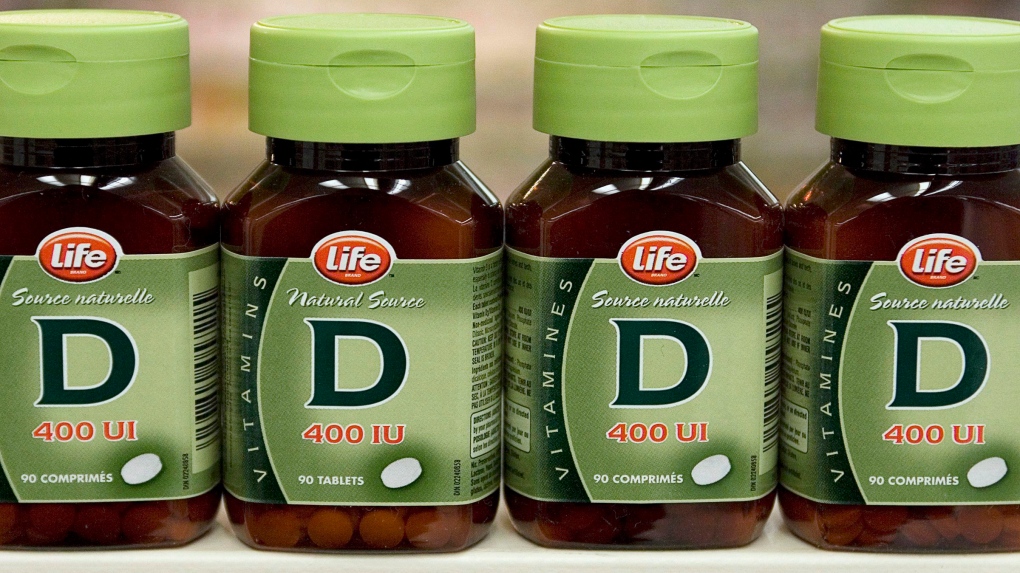TORONTO -
A new Canadian study suggests that taking vitamin D supplements won't protect against COVID-19.
While low levels of vitamin D have been linked to a higher risk of infection and severe illness, a new study conducted by researchers out of McGill University in Montreal reported that there is no genetic evidence that the supplement works as a protective measure against the coronavirus.
"Vitamin D supplementation as a public health measure to improve outcomes is not supported by this study. Most importantly, our results suggest that investment in other therapeutic or preventative avenues should be prioritized for COVID-19 randomized clinical trials," the study's authors wrote.
The findings were published on Tuesday in peer-reviewed journal PLOS Medicine.
According to the study, researchers conduced a Mendelian randomization analysis using genetic variants strongly associated with increased vitamin D levels to assess the relation between the supplement and susceptibility and severity of COVID-19.
Researchers looked at the genetic variants of 4,134 individuals with COVID-19, and 1,284,876 without the disease from 11 countries.
The researchers said in a press release that they wanted to determine whether a genetic predisposition for higher vitamin D levels resulted in less-severe disease outcomes in COVID-19 patients.
The study found "no evidence for an association between genetically predicted vitamin D levels and COVID-19 susceptibility, hospitalization, or severe disease."
Researchers say the findings suggest that raising vitamin D levels by taking supplements may not improve COVID-19 outcomes in the general population.
However, researchers noted that their research had "several important limitations," the most significant being that the study did not take into account those with vitamin D deficiency. Thus, researchers say it remains possible that COVID-19 patients "truly deficient" in vitamin D may benefit from supplementation.
As well, the researchers only analyzed genetic variants from individuals of European ancestry. The study said that future research should look at the relationship with vitamin D and COVID-19 outcomes in other populations.
Taking vitamin D to help protect against severe COVID-19 infection has been of interest to public health experts, but the researchers noted that previous data on the topic has been through observational studies with limited supporting evidence.
Dr. Guillaume Butler-Laporte, co-lead author of the study, said that most previous studies are difficult to interpret, as they don't adjust for known risk factors of severe COVID-19, including age and pre-existing medical conditions, which are also predictors of low vitamin D.
"Therefore, the best way to answer the question of the effect of vitamin D would be through randomized trials, but these are complex and resource intensive, and take a long time during a pandemic," he explained in the press release.
By using a Mendelian randomization, Butler-Laporte says researchers were able to decrease potential bias from these known risk factors, and provide a clearer link between vitamin D and COVID-19.
"In the past Mendelian randomization has consistently predicted results of large, expensive, and timely vitamin D trials. Here, this method does not show clear evidence that vitamin D supplementation would have a large effect on COVID-19 outcomes," Butler-Laporte said.









































